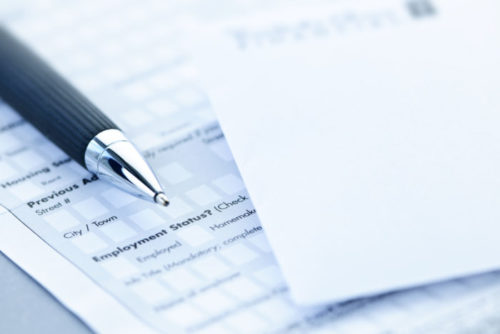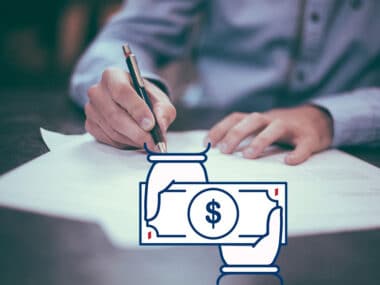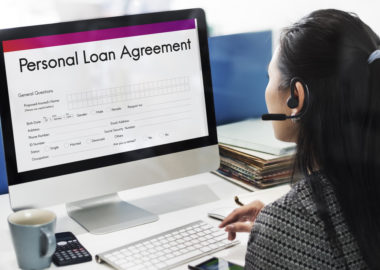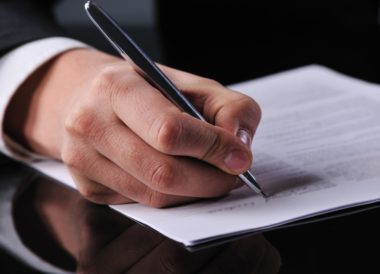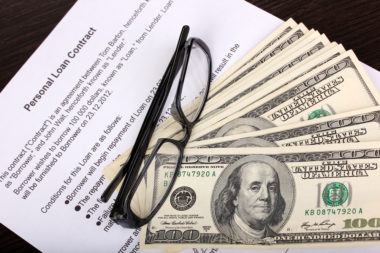A personal line of credit (PLOC) is an amount of money that a creditor has agreed to lend you until the time length of the credit has expired. Unlike a personal loan, where the total amount you have been authorized for is granted in one lump sum, a personal line of credit gives you access to your line of credit on-demand. With a personal line of credit, you can draw on it as needed and pay it back with interest as you go.
Table of Contents
How to Get a Personal Line of Credit
To qualify for a personal line of credit, you will need a good credit score and a solid credit history. You will need to shop around and choose a lender. Once you have selected your lender, you will need to submit an application — many applications may be filled out online. The application process may take one business day or a business week, depending on how you submit (digitally or in-person) and how busy the lender is.
To prepare for applying you will need:
- Your credit score and credit history.
- Proof of income, and sometimes a debt-to-income ratio.
- To authorize the lender for a credit check.
- You may also need to be prepared to pay fees, including a monthly, annual, and/or origination fee.
What Is a Personal Line of Credit Used For?
A personal line of credit is often used to manage expenses, cover unexpected costs, or to fund a large purchase. In general, a personal line of credit should not be used to pay for smaller monthly expenses in your budget, but acts as an emergency fund or a financial buffer in the instances you may need extra money. Using a personal line of credit in your financial strategy may look like:
- Paying for an expensive car repair.
- Paying for part of a home improvement project.
- Making tuition payments until you receive reimbursement.
- Paying for unpredictable expenses.
- Supplementing unpredictable income until you can pay it back.
How Does a Personal Line of Credit Work?
A personal line of credit is an unsecured line of credit that is subject to variable interest rates. This means that you do not need to offer assets as collateral for the credit and that your interest rates may rise and fall with the fluctuations of the market.
When your personal line of credit is approved, you do not receive the amount of credit as a check, but you have access to the credited funds to use as needed. This means that you can make withdrawals against the credit or transfer the money to another account. As soon as you spend or withdraw from the personal line of credit, you will be subject to making regular payments against your debt that must be repaid — with interest.
A PLOC is also approved with a set expiration date, meaning the credit is only available to draw from for a certain amount of time. During that time period, you may continue to borrow and repay that line of credit up to the credit limit. At the expiration date of your personal line of credit, you will need to reapply or apply for a new line of credit if you wish to keep using a personal line of credit in your financial strategy.
For example:
You were issued a line of personal credit for $5,000 and it is good for two years. Within those two years, you can use your personal line of credit to make payments or purchases up to the $5,000 limit. Whatever you spend out of the $5,000, you can pay back, at which point the line of credit is renewed within the two-year limit.
When you have reached your two-year limit, you can cease to use a personal line of credit, you can reapply for the personal line of credit, or you can apply for a new line of personal credit.
How Will a Personal Line of Credit Affect My Credit Score?
Applying for a personal line of credit may require a hard inquiry on your credit report which can temporarily lower your credit score. If you use your personal line of credit wisely, make regular payments, and pay off your debt, it may improve your credit score.
However, if you misuse your personal line of credit, are not able to make payments, or do not pay your debt back, it could harm your credit score.
Personal Line of Credit vs. Personal Loans
The main difference between a personal loan and a personal line of credit is that when you apply and are approved for a personal loan, the amount of the loan is distributed as a lump sum, generally for one-time expenditures. For a personal line of credit, the amount of credit is available for distribution or withdrawal and can be borrowed from until the line of credit is maxed out, and can also be continuously borrowed from as long as the debts are repaid.
Personal Line of Credit vs. Credit Card
A personal line of credit and a credit card are similar in that they both offer credit that can be drawn upon but must also be repaid. They do have some key differences though.
A credit card does not have a draw period or expiration limit. As long as the credit card is open and in good standing, it may continue to be used. Credit cards may also offer credit card rewards that provide incentives or earnings for use and spending.
Pros and Cons of Personal Lines of Credit
There are both advantages and disadvantages to using a personal line of credit for your financial plan and strategy. Consider the following pros and cons of personal lines of credit.
Pros:
- Having a personal line of credit gives you quick access to funds when you need them.
- Some personal lines of credit may offer overdraft protection that stops you from overspending from your line of credit.
- Personal lines of credit do not typically require you to use your assets as collateral.
- You only pay interest on the money you have drawn from the line of credit.
Cons:
- Personal lines of credit have variable interest rates that may be higher than credit card or loan interest rates.
- The interest accrued on personal lines of credit is not tax-deductible.
- You must have a high enough credit score with a solid credit history to be approved for a personal line of credit.
- Mismanaging your personal line of credit can harm your credit score.
Whether or not a line of credit or a personal loan is appropriate for you and your situation is a decision that you’ll have to make after weighing the pros and cons.
Image Source: https://depositphotos.com/
